 W
WIn Roman mythology, Acestes or Egestes was the son of the Sicilian river-god Crinisus by a Dardanian or Trojan woman named Egesta or Segesta.
 W
WIn the Aeneid of Virgil, Achaemenides was a son of Adamastos of Ithaca, and one of Ulysses's crew. He was marooned on Sicily when Ulysses fled the Cyclops Polyphemus, until Aeneas arrived and took him to Italy with his company of refugee Trojans.
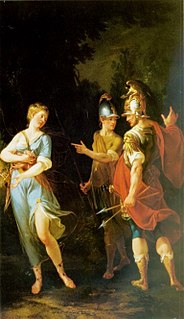 W
WIn the Aeneid, Achates was a close friend of Aeneas; his name became a by-word for a very intimate companion.
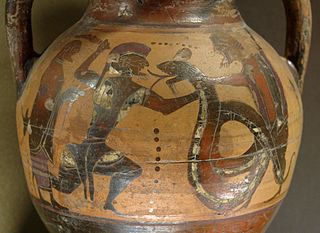 W
WIn Greco-Roman mythology, Aeneas was a Trojan hero, the son of the prince Anchises and the goddess Aphrodite (Venus). His father was a first cousin of King Priam of Troy, making Aeneas a second cousin to Priam's children. He is a character in Greek mythology and is mentioned in Homer's Iliad. Aeneas receives full treatment in Roman mythology, most extensively in Virgil's Aeneid, where he is cast as an ancestor of Romulus and Remus. He became the first true hero of Rome. Snorri Sturluson identifies him with the Norse god Vidarr of the Æsir.
 W
WIn Greek mythology, Aeolus was the keeper of the winds and king of the island of Aeolia, one of the abrupt rocky Lipara islands close to Sicily. Later classical writers regarded him as a god.
 W
WAjax was a Greek mythological hero, son of Oileus, the king of Locris. He was called the "lesser" or "Locrian" Ajax, to distinguish him from Ajax the Great, son of Telamon. He was the leader of the Locrian contingent during the Trojan War. He is a significant figure in Homer's Iliad and is also mentioned in the Odyssey, in Virgil's Aeneid and in Euripides' The Trojan Women. In Etruscan legend, he was known as Aivas Vilates.
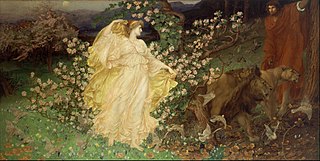 W
WAnchises was a member of the royal family of Troy in Greek and Roman legend. He was said to have been the son of King Capys of Dardania and Themiste, daughter of Ilus, who was son of Tros. He is most famous as the father of Aeneas and for his treatment in Virgil's Aeneid. Anchises' brother was Acoetes, father of the priest Laocoon.
 W
WIn Virgil's Aeneid, Androgeos or Androgeus was a Greek soldier, who during the sack of Troy in the middle of the night mistook Aeneas and his group of Trojan defenders for a Greek raiding party, paying for this mistake with his life. Afterwards, Aeneas's companion Coroebus dressed in Androgeos's armor in order to fool more Greek soldiers to their demise, only to be the first among Aeneas's disguised group to die.
 W
WIn Greek mythology, Andromache was the wife of Hector, daughter of Eetion, and sister to Podes. She was born and raised in the city of Cilician Thebe, over which her father ruled. The name means "man battler" or "fighter of men" or "man fighter" or "man's battle", from the Greek stem ἀνδρ- "man" and μάχη "battle".
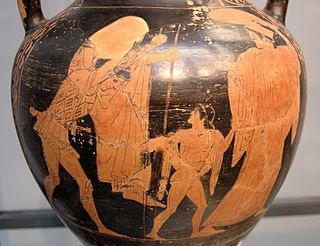 W
WAscanius was a legendary king of Alba Longa and is the son of the Trojan hero Aeneas and Creusa, daughter of Priam. He is a character in Roman mythology, and has a divine lineage, being the son of Aeneas, who is the son of the goddess Venus and the hero Anchises, a relative of the king Priam; thus Ascanius has divine ascendents by both parents, being descendants of god Jupiter and Dardanus. He is also an ancestor of Romulus, Remus and the Gens Julia. Together with his father, he is a major character in Virgil's Aeneid, and he is depicted as one of the founders of the Roman race.
 W
WIn Greek mythology, Automedon, son of Diores, was Achilles' charioteer.
 W
WIn Roman mythology, Caieta was the wet-nurse of Aeneas. The Roman poet Vergil locates her grave on the bay at Gaeta, to which she also gives her name. The poet Ovid, working a generation later, provides an epitaph:HIC • ME • CAIETAM • NOTAE • PIETATIS • ALVMNUS EREPTAM • ARGOLICO • QVO • DEBVIT • IGNE • CREMAVIT
 W
WIn Virgil's Aeneid, Camilla of the Volsci is the daughter of King Metabus and Casmilla. Driven from his throne, Metabus is chased into the wilderness by armed Volsci, his infant daughter in his hands. The river Amasenus blocked his path, and, fearing for the child's welfare, Metabus bound her to a spear. He promised Diana that Camilla would be her servant, a warrior virgin. He then safely threw her to the other side, and swam across to retrieve her. The baby Camilla was suckled by a mare, and once her "first firm steps had [been] taken, the small palms were armed with a keen javelin; her sire a bow and quiver from her shoulder slung." She was raised in her childhood to be a huntress and kept the companionship of her father and the shepherds in the hills and woods.
 W
WCassandra or Kassandra, , was a priestess of Apollo in Greek mythology cursed to utter true prophecies, but never to be believed. In modern usage her name is employed as a rhetorical device to indicate someone whose accurate prophecies are not believed.
 W
WKydonia or Cydonia was an ancient city-state on the northwest coast of the island of Crete. It is at the site of the modern-day Greek city of Chania. In legend Cydonia was founded by King Cydon (Κύδων), a son of Hermes or Apollo and of Akakallis, the daughter of King Minos. According to Pausanias he was son of king Tegeates.
 W
WDiomedes or Diomede is a hero in Greek mythology, known for his participation in the Trojan War.
 W
WEntellus was a Trojan or Sicilian hero from whom the town of Entella in Sicily was believed to have received its name. He was a friend of the Trojan king Acestes. A boxing match between Entellus and an arrogant younger boxer, Dares, is described in the fifth book of Virgil's Aeneid.
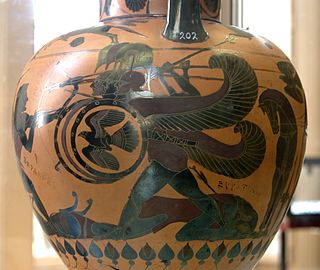 W
WIn Vergil's Aeneid, Erulus is a king of Praeneste. At birth, he was given three souls (animae) by his mother, the goddess Feronia, who also tripled his ability to defend himself by giving him three sets of arms.
 W
WIn Roman mythology, Evander was a culture hero from Arcadia, Greece, who brought the Greek pantheon, laws, and alphabet to Italy, where he founded the city of Pallantium on the future site of Rome, sixty years before the Trojan War. He instituted the festival of the Lupercalia. Evander was deified after his death and an altar was constructed to him on the Aventine Hill.
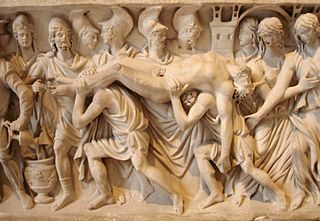 W
WIn Greek mythology and Roman mythology, Hector was a Trojan prince and the greatest fighter for Troy in the Trojan War. He acted as leader of the Trojans and their allies in the defence of Troy, "killing 31,000 Greek fighters." He was ultimately killed by Achilles.
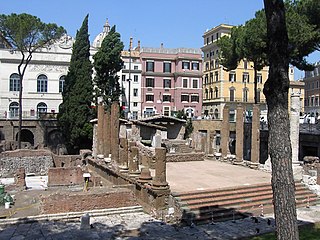 W
WIn the myth and religion of ancient Rome, Juturna, or Diuturna, was a goddess of fountains, wells and springs, and the mother of Fontus by Janus.
 W
WLaocoön, the son of Acoetes, is a figure in Greek and Roman mythology and the Epic Cycle. He was a Trojan priest who was attacked, with his two sons, by giant serpents sent by the gods. The story of Laocoön has been the subject of numerous artists, both in ancient and in more contemporary times.
 W
WLatinus was a figure in both Greek and Roman mythology. He is often associated with the heroes of the Trojan War, namely Odysseus and Aeneas. Although his appearance in the Aeneid is irreconcilable with his appearance in Greek mythology, the two pictures are not so different that he cannot be seen as one character.
 W
WLausus was the son of the ousted Etruscan king Mezentius, and fought with him against Aeneas and the Trojans in Italy. He appears in Virgil's Aeneid in Books VII and X. When his father is wounded by Aeneas, Lausus steps in between them, and Aeneas strikes them down. In doing so, Lausus embodies the idea of pietas that Virgil praises throughout, exemplified in the relationships of Anchises and Aeneas and of Pallas and Evander. Aeneas immediately feels remorse for having killed the boy, and reproaches Lausus' men for keeping a distance rather than caring for the body: "Then to the stripling's tardy followers / he sternly called, and lifted from the earth / with his own hand the fallen foe: dark blood / defiled those princely tresses braided fair."
 W
WIn Roman mythology, Lavinia is the daughter of Latinus and Amata, and the last wife of Aeneas.
 W
WIn Roman mythology, King Metabus of the Volsci was the father of Camilla.
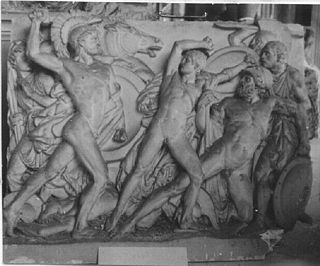 W
WIn Roman mythology, Mezentius was an Etruscan king, and father of Lausus. Sent into exile because of his cruelty, he moved to Latium. He reveled in bloodshed and was overwhelmingly savage on the battlefield, but more significantly to a Roman audience he was a contemptor divum, a "despiser of the gods."
 W
WNeoptolemus, also called Pyrrhus, was the son of the warrior Achilles and the princess Deidamia, and brother of Oneiros in Greek mythology, and also the mythical progenitor of the ruling dynasty of the Molossians of ancient Epirus.
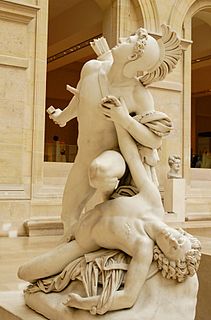 W
WNisus and Euryalus are a pair of friends and lovers serving under Aeneas in the Aeneid, the Augustan epic by Virgil. Their foray among the enemy, narrated in Book nine, demonstrates their stealth and prowess as warriors, but ends as a tragedy: the loot Euryalus acquires attracts attention, and the two die together. Virgil presents their deaths as a loss of admirable loyalty and valor. They also appear in Book 5, during the funeral games of Anchises, where Virgil takes note of their amor pius, a love that exhibits the pietas that is Aeneas's own distinguishing virtue.
 W
WNumanus Remulus is a Rutulian appearing in Book 9 of Virgil's Aeneid. He is the brother-in-law of the Rutulian prince Turnus, and is killed by the Trojan prince Ascanius, son of Aeneas and future king of Alba Longa. Numanus is a minor character in the Aeneid, and is otherwise unknown in Latin literature; he appears only within the episode in which he is killed in Aeneid 9.
 W
WIn Roman mythology, Pallas was the son of King Evander. In Virgil's Aeneid, Evander allows Pallas to fight against the Rutuli with Aeneas, who takes him and treats him like his own son Ascanius. In battle, Pallas proves he is a warrior, killing many Rutulians. Pallas is often compared to the Rutulian Lausus, son of Mezentius, who also dies young in battle. Tragically, however, Pallas is eventually killed by Turnus, who takes his sword-belt, which is decorated with the scene of the fifty slaughtered bridegrooms, as a spoil. Throughout the rest of Book X, Aeneas is filled with rage (furor) at the death of the youth, and he rushes through the Latin lines and mercilessly kills his way to Turnus. Turnus, however, is lured away by Juno so that he might be spared, and Aeneas kills Lausus, instead, which he instantly regrets.
 W
WPandarus or Pandar is a Trojan aristocrat who appears in stories about the Trojan War.
 W
WParis, also known as Alexander, the son of King Priam and Queen Hecuba of Troy, appears in a number of Greek legends.
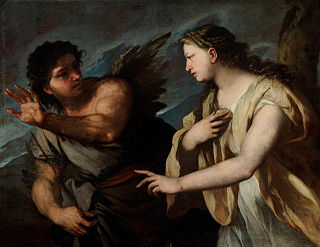 W
WPicus was a figure in Roman mythology, the first king of Latium. He was the son of Saturn, also known as Stercutus. He was the founder of the first Latin tribe and settlement, Laurentum, located a few miles to the Southeast of the site of the later city of Rome. He was known for his skill at augury and horsemanship. According to Festus he got his name as a consequence of the fact that he used to rely on a woodpecker for the purpose of divination. Picus was also described to be quite handsome, sought after by nymphs and naiads. The witch Circe attempted to seduce him with her charms and herbs while he was on a hunting trip, but he savagely rejected her. She turned him into a woodpecker for scorning her love. When his comrades accused Circe of her crime and demanded Picus' release, she turned them too into a variety of beasts. Picus' wife was Canens, a nymph. After Picus' transformation she wandered madly through the forest for 6 days until finally she lay down on the bank of the Tiber and died. They had one son, Faunus.
 W
WIn Greek mythology, Polites was the legitimate son of King Priam and Queen Hecuba. He was a prince of Troy, and brother of 49 other children, including 12 daughters. He was killed by Neoptolemus (Pyrrhus), son of Achilles, who then killed his father.
 W
WIn Greek mythology, Priam was the legendary king of Troy during the Trojan War. His many children included notable characters like Hector and Paris.
 W
WIn Greek mythology, Sinon, a son of Aesimus or of the crafty Sisyphus, was a Greek warrior during the Trojan War.
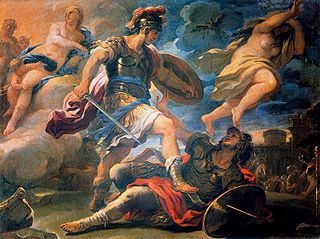 W
WTurnus was the legendary King of the Rutuli in Roman history, and the chief antagonist of the hero Aeneas in Virgil's Aeneid.
 W
WUcalegon was one of the Elders of Troy, whose house was set afire by the Achaeans when they sacked the city. He is one of Priam's friends in the Iliad, and the destruction of his house is referred to in the Aeneid.